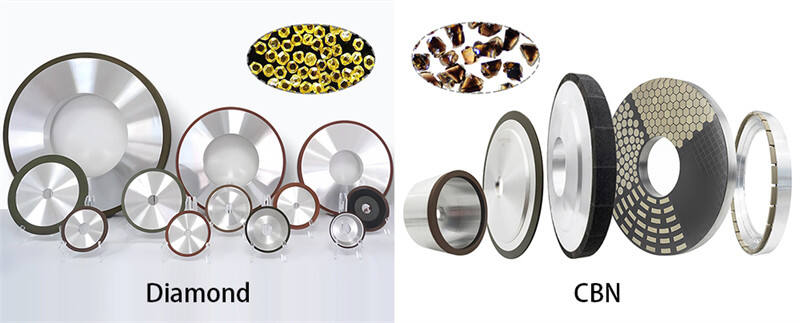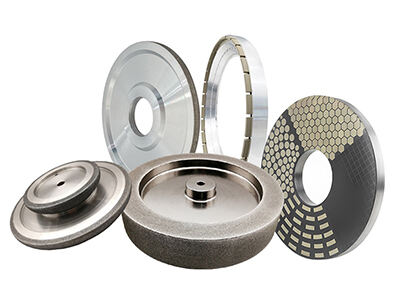Grinding wheel is one of the most convenient choices in any precision grinding operation. Two of the most popular superabrasives currently are diamond and cubic boron nitride (known as CBN). Both are extremely durable and are made for applications that require intensive usage; however, they are not the same. The wrong choice can lead to sub-optimal results, defective parts and wasted resources. Hopefully, by the end of this article, you won't be left with any uncertainties as to which ones are the most important differences and with that, you should be able to make the right choice for your wheel application with confidence.
The key distinction to know
The choice between diamond and CBN isn't which is superior, but which is appropriate to the material you're grinding. The fundamental difference between them is their chemical composition and the reaction of each one with different workpiece materials.
Diamond is a variety of pure carbon and is the hardest of substances on earth. However, it has a big weakness, that it has a strong chemical affinity for ferrous metals. This means that at the high temperatures generated during grinding, diamond reacts pretty easily with iron, cobalt and nickel, which leads to rapid wheel wear.
Cubic Boron Nitride (CBN) is the second hardest material after diamond. Its major benefit is the chemical inertness during grinding of ferrous metals. It is stable, non-reactive towards iron and thus the preferred elemental constituent in a large variety of hard and tough steels.

The Diamond Grinding Wheel
Diamond wheel uses abrasives of synthetic diamond particles. They are strong, but are designed for use specifically with a given grade of materials.
Diamond wheels are excellent for grinding non-ferrous, very hard materials. They are mostly used on ceramics, carbide, glass, granite and some stone. They can also be used for nonferrous metals (aluminum, copper and brass, etc.), but sometimes on softer materials like these, other abrasives are less expensive. The important rule of thumb is that a diamond wheel should never be used on any steel. The chemical reaction will cause the diamond to graphitize and wear away in unbelievably short time, rendering a very valuable wheel unusable.
The CBN Grinding Wheel
The CBN Grinding Wheel is the professional metal working industry tool. The industry standard for grinding ferrous metals because of its properties.
The Carb Boride Nitride (CBN) compound is made for hard and problem steels. Tool steels, die steels, stainless steels, case hardened steels, and many high temperature alloy materials are examples. If the workpiece is a ferrous hard metal then the best one would be a CBN wheel. Premature failure of the abrasive does not occur with grinding heat. This results in much colder cutting action, which protects the metallurgical properties of the workpiece and prevents the workpiece from burning. In addition, CBN wheels have excellent shape holding capabilities which translates to greater accuracy, tighter tolerances, and more wheel life than conventional abrasives used on such materials. The Best Option for Your Workshop
So what's your grinding wheel? Well, the answer is easily obtained by looking at your workpiece material.
If you're cutting carbide, ceramics, glass, or concrete, you need a diamond wheel. It's the only abrasive that is hard enough to cut these materials effectively.
If you're grinding hard steels such as tool steel, bearing steel or martensitic stainless steel, you'll need a CBN wheel. It will provide longer life, improved finish and cooler operation.
Having both types of wheels is logical for shops that work on a lot of different materials to maximize productivity and ensure the best possible quality finish. Note that the most important step towards a successful and economical grinding result is to match the abrasive to the material.

